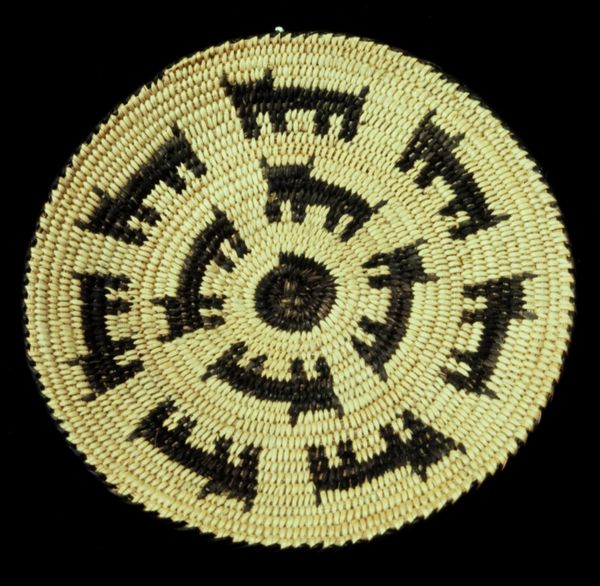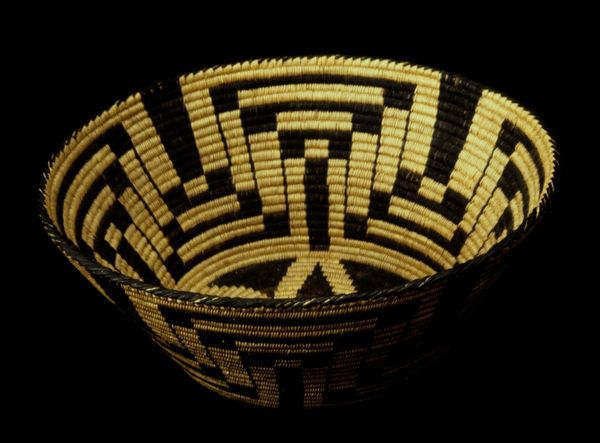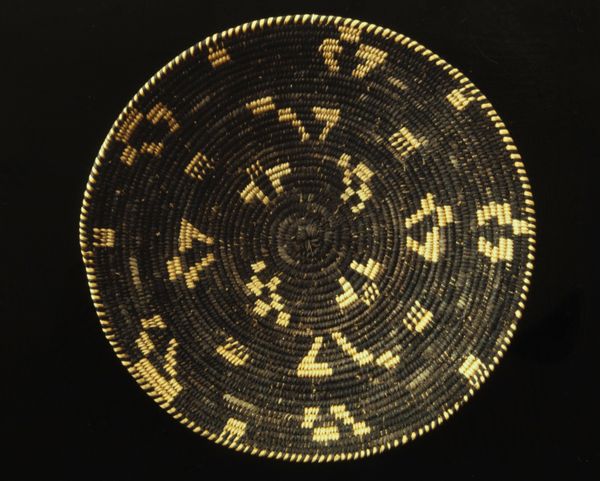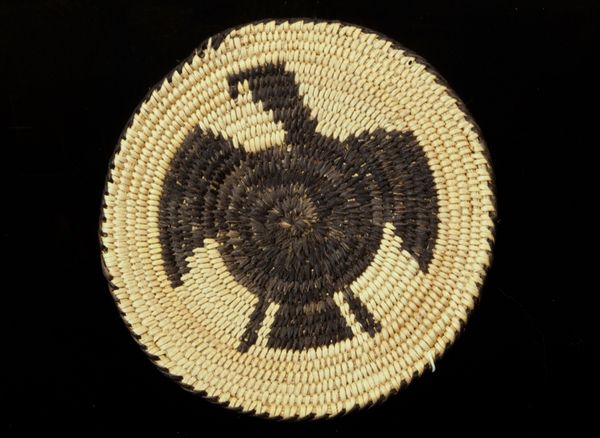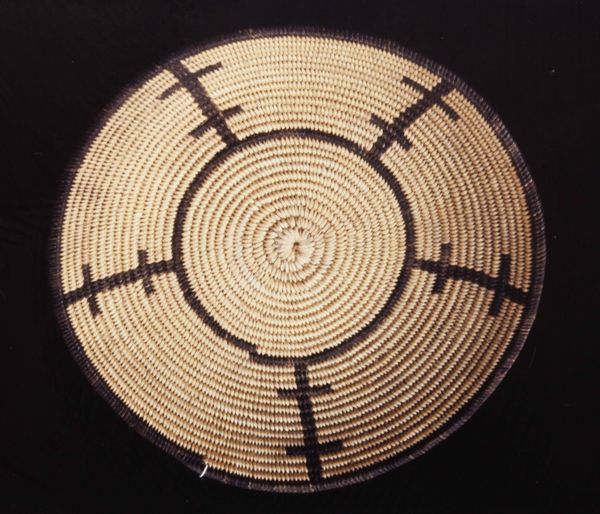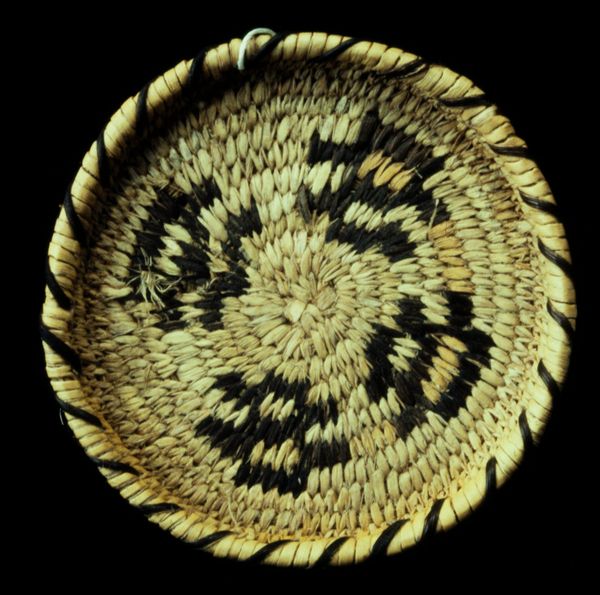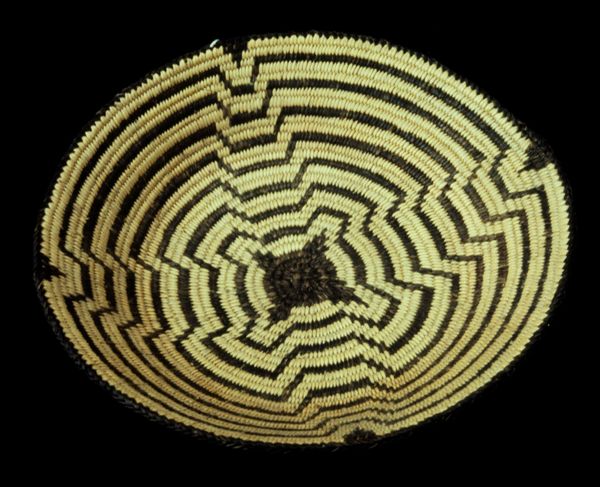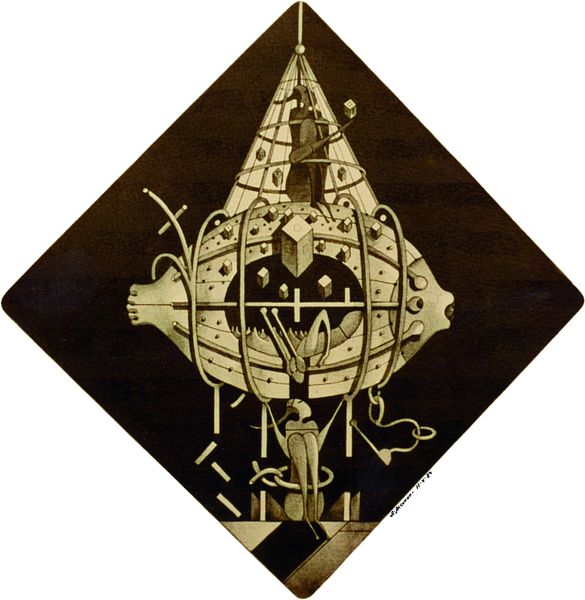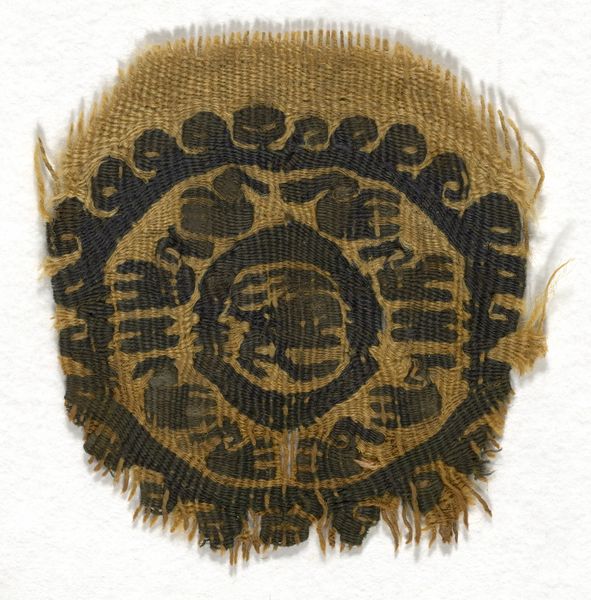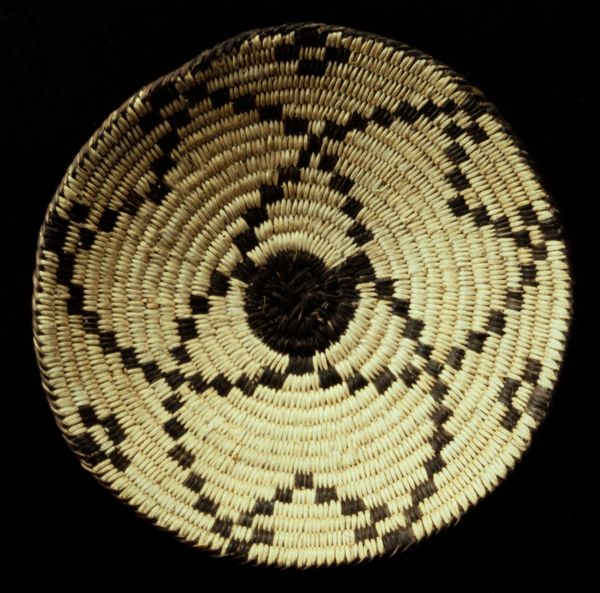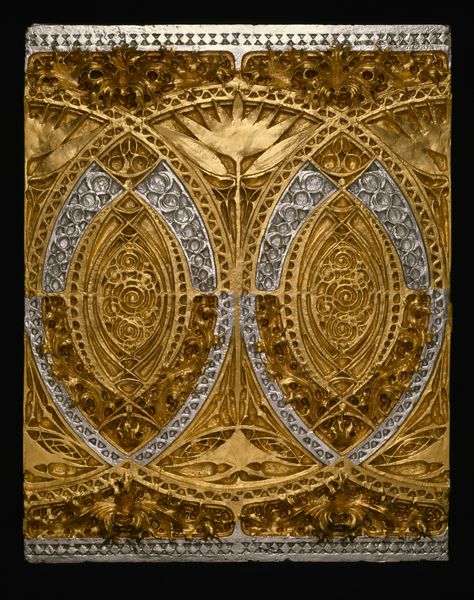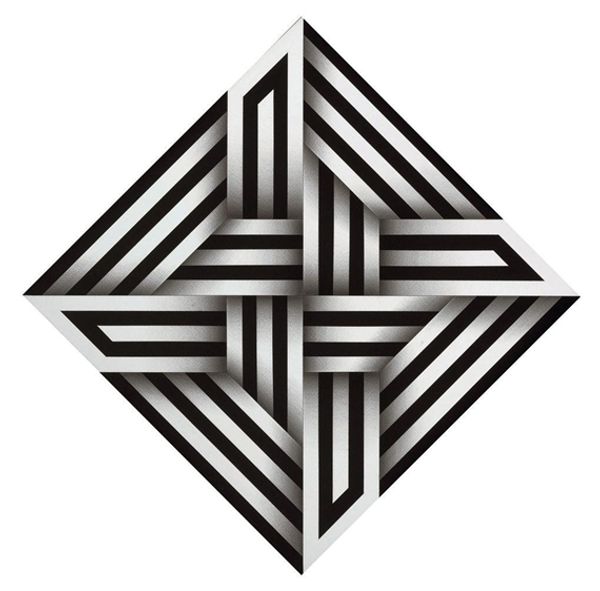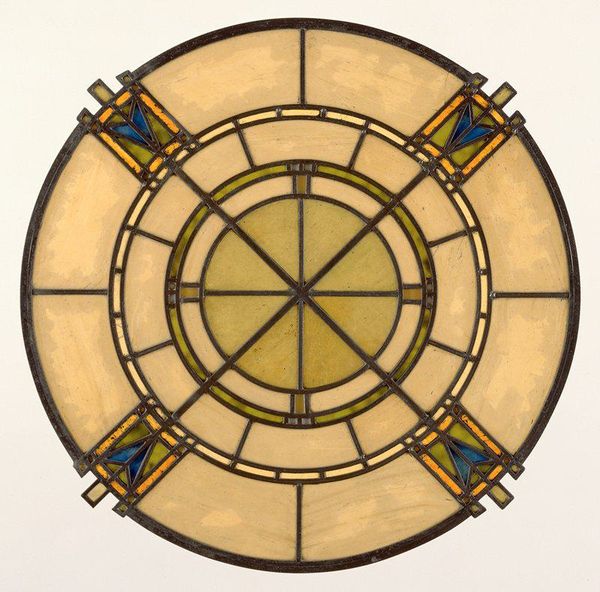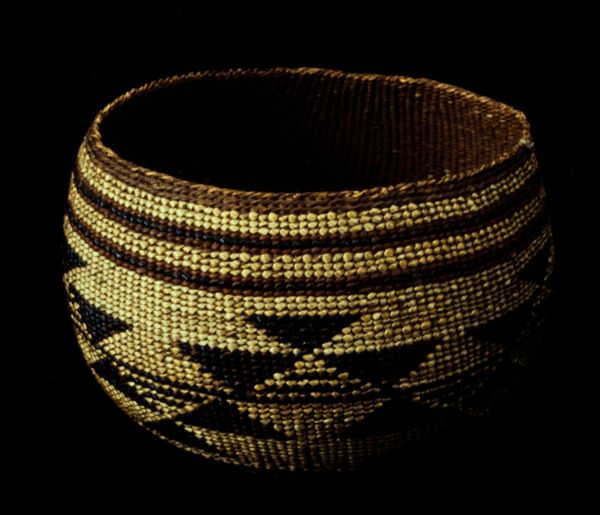
fibre-art, weaving, textile
#
fibre-art
#
weaving
#
textile
#
geometric
#
indigenous-americas
Dimensions: 10 x 10 in. (25.4 x 25.4 cm) (diameter)
Copyright: Public Domain
This coiled plaque was made by the Tohono O’odham, or Papago, people. It's made of plant fibers, woven in concentric circles to form a shallow dish. The straw-colored background is punctuated by angular designs in black. It reminds me of the way artists think about the relationship between positive and negative space, the way shapes affect each other. You can see the hand in it, the way the materials are coaxed and pulled into shape. It's not perfect, there's a looseness to it that makes it feel alive. The central circle of dark pigment draws me into the center of the piece, a whirlpool, a kind of vortex. Then, the geometric forms radiate outward. There's a really interesting use of the zig zag motif to create a sense of movement and rhythm, a bit like the work of Anni Albers. I like the way that craft traditions seem to operate in an ongoing exchange of ideas, each generation building on the work of those who came before, to create something new.
Comments
minneapolisinstituteofart about 2 years ago
⋮
The Tohono O'odham (Papago) and Akimel O'othom (Pima), together referred to as Pimans, live in a large area of the Southwest including, central Arizona and extending down into Sonora, Mexico. Tohono O'odham translates to "desert people" and Akimel O'othom to "river people." They are essentially one people with minor differences in culture, dialect and environment. Baskets have been an integral part of their daily lives. Their baskets were so tightly woven that they could be used to transport water or as basins for washing. Additionally, baskets were used for storing and preparing food. Large shallow bowls, such as this one, were the most common form. Traditionally, the Pimans use splints of bear grass or cattail to make coils that are stitched with devil's claw and willow. The classic Piman basket has an abstract, geometric design that is built out from the center black disc in a radiating or whirling pattern.
Join the conversation
Join millions of artists and users on Artera today and experience the ultimate creative platform.
